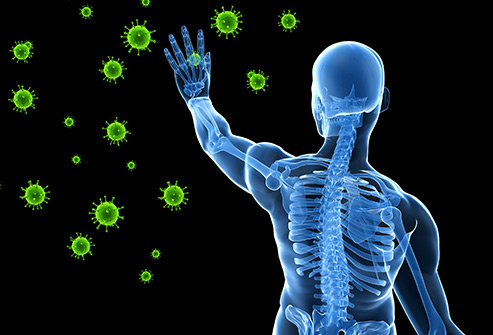Vitamin A is a fat-soluble vitamin much like vitamin D. It improves our eyesight at night, strengthens our bones and teeth, along with our immune system.
There are two types of vitamin A. Firstly, preformed vitamin A which is found in animal products. Secondly, provitamin A, which is found in plant-based products. In supplement form, you may see vitamin A as beta-carotene. (01)
It’s the role of vitamin A (also referred to as retinoids) to act as an antioxidant, nurturing our DNA, allowing them to form new protective layers of epithelial cells, i.e. cavities in and around the body.
Furthermore, this fat-soluble vitamin can also balance our hormones, as it stimulates activity in the endocrine glands (responsible for hormone production such as testosterone, estrogen, insulin, and cortisol).
Inside this article, I’ll discuss how vitamin A provides all of the above benefits. Along with ideal dosage recommendations, and possible side effects.
Table of Contents
The Importance of Vitamin A

Without enough vitamin A, we’d begin to lose our eyesight at night, our immune system would begin to falter, and our respiratory system would struggle to fight off illnesses.
Not only that, if you’ve ever had a bout of acne or other skin related irritations, it could be down to a lack of vitamin A. Why is this? Vitamin A regulates skin cells, signaling for faster cell growth, bringing healthier skin to the surface. (02)
As for the respiratory systems, such as our lungs, vitamin A has been highlighted that it may be able to prevent the formation of certain diseases such as lung cancer.
The Studies:
According to the Harvard School of Public Health:
“In a dozen case-control and cohort studies, high intake of fruits and vegetables containing carotenoids has been associated with a reduced risk of lung cancer.” (03)
Furthermore, the Department of Biochemistry, Vanderbilt University School of Medicine, Nashville, Tennessee stated the following when retinoids were concerned:
“Evidence is reviewed supporting the view that vitamin A (retinol) and its metabolite, retinoic acid, called natural retinoids, are major factors involved in differentiation and in maturation of the lungs.” (04)

Gene Expression
Vitamin A is especially important for mothers who are pregnant. This is down to the way it controls gene expression, passing on heritable information from your parents within the DNA. However, taking a lot of preformed vitamin A can be dangerous for pregnant women (see doses and side effects below).
So, what does vitamin A do exactly?
When ingested, vitamin A assists the DNA, along with proteins to heal the body.
DNA is arranged into RNA (similar to DNA, but only containing one intercoiled strand). From this point, RNA is then made into proteins which build protective layers around our airways and eyes.
The basic idea is that DNA is transcribed into RNA, which is then translated into proteins. Proteins make many of the structures and all the enzymes in a cell or organism. (05)
There is much more to this complex process of DNA and cell formation.
However, to quickly summarise, vitamin A signals for proteins to be used, to create new cells within our body. Whether that’s in the womb, at birth, or everyday life where cell expression is needed for the growth and repair of our protective immune system.

Improved Immunity
Vitamin A is known to play an important role in the formation of epithelial tissue such as our skin.
As we now know, vitamin A is responsible for gene expression, this leads us onto why our immune system may become weaker if vitamin A is in short supply.
To clarify, vitamin A is needed for the differentiation of immune cells.
Therefore, the lack of this vitamin will impair the formation of cells that are important for fighting off illnesses and infections due to a weaker epithelial tissue barrier.
The less epithelial tissue you have, which is located in our airwave passages, such as the nose and lungs, the more susceptible we are to catching colds and other illnesses – this is where vitamin A can help.
Strengthens Testosterone Levels
According to animal studies, vitamin A has shown to assist in the secretion of testosterone in the testicles. (06)
The study concluded that an increase of transferrin was noted, which is responsible for the transportation of growth factors i.e. IGF-binding protein 4, androgen-binding protein, and transforming growth factor-beta – all of which are linked to the increase of testosterone production.
In the words of Christopher Masterjohn, Ph.D. on vitamin A and testosterone:
Vitamin A crosses the blood-testis barrier in its alcohol form as retinol, where it is stored in the Sertoli cells and converted as needed to its more biologically active form, retinoic acid. (07)
While it may be tempting to rush out and start supplementing with large amounts of vitamin A to improve testosterone levels. The same study showed that too much vitamin A can also lead to testicular lesions and spermatogenetic disorders – such as tumors.
In summary, yes, vitamin A can help improve testosterone levels if you are low in vitamin A, but too much could provide the opposite effect.
The Different Types of Vitamin A
There are two main types of vitamin A from food sources. These are:
- Pro-vitamin A: This form of vitamin comes from animal products. such as retinol-fatty-acids.
- Pre-vitamin A: These are plant sources, (carotenoids) such as beta-carotene which can be converted into retinal – the usable form of the vitamin.
The difference between the two? Pre-vitamin has to be converted before it’s used in the body, and pro-vitamin is an active form of vitamin A, which our body can use without the need for conversion.
There are three types of vitamin A. These are Retinol, Retinal, and Retinoic Acid – all of which are classed as retinoids.
The animal product of retinol circulates throughout the bloodstream, while the plant sources can then be converted into retinal (important for vision).
- Preformed vitamin A is present mainly as retinol bound to fatty acids. Furthermore, beta-carotene, for example, can be converted into retinal inside the intestinal mucosa, and also the liver.
- In the body, both retinol and retinal can be interconverted.
- Finally, both retinol and retinal can be converted into retinoic acid. Once this process happens, it cannot be converted back to their original forms of either retinol or retinal.
RETINOL is what circulates in the blood.
RETINAL is what’s important for vision, allowing for healthier eyesight, especially at night.
RETINOIC ACID is responsible for gene expression, growth, and reproduction.

Where Can You Find Vitamin A In Foos?
You can find vitamin A in a variety of foods. Some of the highest concentrations of vitamin A are those in animal liver, butter, and eggs to name a few. As for vegetable sources, you can find vitamin A in kale, sweet potatoes, carrots, and raw spinach.
The recommended daily allowance or RDA suggests that men should aim for 1000 mcg per day, women 800 mcg, and children should look to consume 400 mcg.
All food amounts are based on 100 grams.
Aminal Sources:
- Beef Liver — 9,442 mcg (1,049% DV)
- Lamb Liver — 7,491 mcg (832% DV)
- Liver Sausage — 8,384 mcg (923% DV)
Fruit Sources:
- Mango — 54 mcg (6% DV)
- Cantaloupe — 169 mcg (19% DV)
- Pink or Red Grapefruit — 58 mcg (6% DV)
Vegetable Sources:
- Sweet Potato (cooked) — 1,043 mcg (116% DV)
- Winter Squash (cooked) — 558 mcg (62% DV)
- Carrot (cooked) — 852 mcg (95% DV)
Food sources courtesy of healthline.com (08)
In Supplement Form
Most supplements contain either retinyl acetate or retinyl palmitate (preformed vitamin A). You can also find beta-carotene which is classed as a pre-vitamin A, but remember, your body will need to convert this into retinol which is the usable form.
To clarify; while eating a variety of plant-based products is always recommended in anyone’s diet, absorbing enough vitamins from plant sources (such as vitamin A) may prove difficult in some cases.
This is due to the way our bodies struggle to assimilate large amounts of vitamins from plant sources. Hence the possible requirement for supplements, especially if you’re an active person where your calorie needs may increase, along with your micronutrients.
Ideal Vitamin A Doses
According to the National Center for Biotechnology Information, for men, the RDA for vitamin A is 1000 mcg per day, women 800 mcg, and children 400 mcg. (09)
Side Effects of Too Much Vitamin A
It’s been highlighted by the national institute of health, that too much-preformed vitamin A can cause side effects such as: “dizziness, nausea, headaches, coma, and even death. High intakes of preformed vitamin A in pregnant women can also cause birth defects in their babies”. (10)
Furthermore, they continued to state that “consuming high amounts of beta-carotene or other forms of provitamin A can turn the skin yellow-orange”.
While the upper limits for beta-carotene and other types of provitamin A have not yet been established, performed A, on the other hand, states that for adults, 10,000 IU per day is the highest anyone should take. Unless stated by their doctor (equating to 3000 mcg which is incredibly high).
As long as you stay within the recommended dose ranges, side effects should not be a concern.

Is Vitamin A For You?
Retinoids can strengthen our immune system, improve our eyesight, along with reducing the risk of respiratory infections and illnesses.
Not only that, but this fat-soluble vitamin can also provide us with healthy-looking skin, as vitamin A signals DNA to use proteins which results in a healthy skin tone, along with a stronger protective layer.
For doses, stay below 1000 mcg for men, 800 mcg for women, and 400 mcg for children. If you are pregnant, or if you’re concerned about using preformed vitamin A, first speak to your doctor.
While we may easily forget to eat carrots, kale, or if you’re a meat eater, animal liver on a regular basis – it pays to do so. These foods are packed with vitamin A, helping us fight off respiratory illnesses.
Conclusion
To summarise, if you’re an active person, the chances of catching a cold or respiratory illness increases as your immune system begins to take on a different role in the body.
For example, when your body needs to repair itself i.e. after exercise, the immune system becomes weaker. The red blood cells that would originally fight against airborne viruses are now working to repair your damaged muscle cells.
Long story short, eating, or using supplements that contain vitamin A will help to keep your immune system strong, especially in the post-exercise window.
Furthermore, if you find yourself with frequent skin irritations, dry eyes or nose for example, this could be a symptom of low vitamin A levels.
Resources:
(01) National Institute of Health – What is vitamin A and what does it do? (source)
(02) Retinoids in the treatment of skin aging: an overview of clinical efficacy and safety. (source)
(03) Vitamin A and lung cancer. (source)
(04) The lungs and vitamin A. (source)
(05) Wikipedia – Gene expression. (source)
(06) Regulation and perturbation of testicular functions by vitamin A. (source)
(07) Vitamin A: The Forgotten Bodybuilding Nutrient. (source)
(08) HealthLilne.com – 20 Foods That Are High in Vitamin A. (source)
(09) Safe and Adequate Daily Dietary Intakes of Selected Vitamins and Minerals. (source)
(10) National Institute of Health – What is vitamin A and what does it do? (source)

Leave a Reply